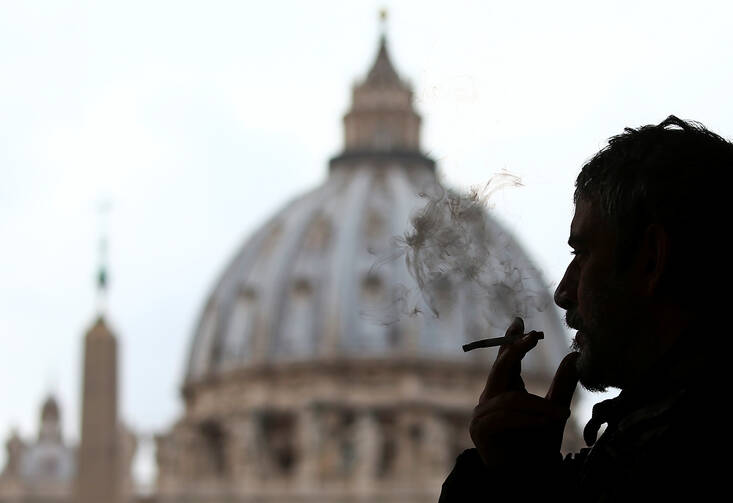VATICAN CITY (AP) — Pope Francis is saying "Just Say No" to cigarettes.
The Vatican announced Thursday that it would no longer sell cigarettes to employees in its duty free shop and supermarket — giving up an estimated 10 million euros ($11 million) a year in profit.
Francis made the decision because "the Holy See cannot contribute to an activity that clearly damages the health of people," the Vatican said. A statement cited the World Health Organization, which says smoking causes more than 7 million deaths annually around the globe.
A 2015 book based on leaked Vatican documents, "Avarice," reported that cigarette sales bring in an estimated 10 million euros a year to the Vatican City State and are the second-most important source of income after tax-free gas sales. The book, however, also reported that the booming tobacco sales were an example of how the Vatican's tax-free commercial activities were being abused.
With Italy's VAT sales tax at 22 percent, anyone who can get their hands on a coveted Vatican "commercial card" does so since it gives them access to a world of high-end, tax-free shopping. With it, lucky cardholders can buy their weekly groceries at the Vatican supermarket, fill their tank at the Vatican gas station, get a prescription filled at the Vatican pharmacy, and do their Christmas shopping at the Vatican's department store — all duty free.
And the pickings are excellent: Cuban cigars, Samsung flat-screen TVs, prestigious wine so sought-after that the Vatican consistently tops the list of highest per-capita wine consumption in the world.
Only Vatican employees, retirees and residents, accredited diplomats and members of religious congregations have the right to a "commercial card" — a number that Ernst & Young estimated in 2013 should not exceed a few thousand people given that the Vatican employs around 5,000 people. And yet, according to the E&Y audit reported in "Avarice," 41,000 "commercial cards" were in use.
Cardholders are limited to buying 80 boxes of cigarettes a year but the audit found that 278 clients exceeded the limit that year.
The book, written by journalist Emiliano Fittipaldi, hypothesized that cardholders were reselling their cigarettes under the table and making a handsome, unreported profit.
In its statement, the Vatican said while its cigarette sales represented a source of revenue "no profit can be legitimate if it puts lives at risk."
For the record, Francis doesn't smoke but plenty of his Vatican advisers do. And while the Vatican officially banned smoking in nearly all enclosed places in 2002, violations abound.









